
Discover all about health insurance in Switzerland in our special feature
Any expatriate planning to move to Switzerland must understand the intricacies of its healthcare system. This page aims to provide an overview of the Swiss Health Insurance Law (LAMal) and the country's healthcare landscape. When moving to Switzerland, the cost of mandatory health insurance and supplementary insurance should be factored into your budgeting plans. Here, you'll discover the fundamentals of LAMal, its practical implications, associated costs, and a snapshot of the current healthcare environment in Switzerland. Additionally, we cover health insurance options for expatriates to help you fully grasp this aspect of your new life in Switzerland.

| Healthcare expenditure par capita and per year | € 7 391 |
| Annual indexing of health care expenses | 12% |
| CFE hospitalization reimbursement rate | 19% |
| Number of insurance companies available | 13 |
| Annual cost of hospitalization coverage for a 30-years-old | € 1 332 |
| Annual cost of hospitalization coverage for a 50-years-old | € 2 520 |

The first federal law on health insurance, known as LAMal, came into effect in 1912, replacing various cantonal laws. The current version of LAMal was implemented in 1996, aimed at modernizing and further regulating Switzerland's health insurance system.
For newcomers, Switzerland’s healthcare system can appear complex due to its dual governance by the federal government and individual cantons. There isn’t a single centralized system; instead, multiple private health insurance funds provide the basic health coverage. To better understand healthcare in Switzerland, here are three key concepts:
Choosing a health insurance provider is flexible and is based on factors like premium rates, services offered, reputation, and the available insurance models. The primary models include:
The benefits provided under the Mandatory Health Insurance (OAS) cover expenses related to illness, maternity, and accidents (for salaried employees, accidents are covered by the employer) for services deemed effective, appropriate, and cost-efficient.
Covered services include: doctor fees, prescribed medications (according to approved lists), hospital costs (within the canton), maternity costs (during pregnancy, childbirth, and up to 8 weeks postpartum), certain vaccinations, and preventive care (such as mammography), as well as certain complementary medicine treatments provided by approved doctors. Emergency healthcare costs abroad are also covered under specific conditions.
However, optical and dental costs are not covered, except in some cases for children under 18 and for certain severe conditions. For non-covered services like dental care or private rooms, supplementary insurance is necessary.
Emergency care is provided in most hospitals and clinics, provided proof of insurance is presented, except in life-threatening emergencies. Hospitalization must be arranged within your canton of residence unless otherwise impossible. Hospitals are categorized into three levels:
The cost of hospitalization depends on the procedure, the hospital, and the patient’s health condition. The calculation is based on the CUI (capital utilization indicator) from the SwissDRG catalog: CUI indicator x CHF 10,000 (base rate). A deposit of up to CHF 10,000 may be required, highlighting the importance of being insured.

Enrollment in LAMal is compulsory for all permanent residents in Switzerland, including foreign nationals (and their families) who hold a B or C permit, or those with a short-term or residency permit valid for at least three months (L permit) but who cannot prove they have health insurance equivalent to the Mandatory Health Insurance (OAS).
Indeed, anyone residing in Switzerland must obtain health insurance coverage for medical care within three months of moving to Switzerland (or being born there). This obligation also applies to individuals working or regularly staying in Switzerland, employees of companies headquartered in Switzerland, and those receiving a Swiss pension (exclusively) or unemployment benefits.
If the enrollment is not completed within the three-month period, LAMal imposes a late penalty. If the delay is unjustifiable, the additional premium ranges between 30% and 50% of the monthly premium, depending on the length of the delay. The penalty must be paid for double the duration of the delay, up to a maximum of five years of retroactive coverage.
There are exceptions for Swiss residents whose primary employment is within the EU, retirees who receive their pension exclusively from the EU, members of diplomatic/consular missions or employees of international organizations, as well as students and cross-border commuters.
Important: Subscribing to an international health insurance plan for Switzerland does not automatically exempt expatriates from enrolling in LAMal.
Students from the EU, EFTA, or the UK who are temporarily residing in Switzerland for education or training purposes may be exempt from LAMal enrollment if they are not engaged in paid employment and remain insured in their home country. Access to healthcare in Switzerland is granted upon presentation of the European Health Insurance Card (EHIC).
Students from other countries must present private health insurance equivalent to LAMal’s coverage to obtain an exemption from the cantonal health authority, valid for up to three years and renewable once. Beyond that period, students are required to enroll in LAMal and choose a health insurance plan. Students from the EU, EFTA, or the UK can also apply for this exemption if they have travel or expatriate insurance.
Certain statuses allow individuals to avoid mandatory enrollment in LAMal, such as international civil servants or students. In such cases, the canton may grant an "exemption." The request must be submitted within three months of arriving in Switzerland. It may be granted if enrolling in LAMal would result in a decrease in health coverage or if obtaining supplementary insurance would be difficult due to specific medical conditions. Additionally, it is necessary to present an equivalence certificate proving that the expatriate insurance meets LAMal’s mandatory criteria (and beyond). Cantons do not grant exemptions once the three-month deadline has passed.
Cross-border commuters are not eligible for exemptions but must also choose their health system within three months of arriving. Traditional health insurance plans offer more options than the Swiss cross-border regime.

Health insurance premiums in Switzerland are determined by two legally defined factors: age (0-18, 18-25, or 26+ years) and place of residence (canton or region). Additionally, premiums are influenced by two supplementary factors: the chosen insurance model and deductible. These latter factors can result in discounts for policyholders.
Under the LAMal system, the principle of solidarity prevents health insurance funds from setting premiums based on the individual risk posed by the insured person. However, premium differences do exist, particularly concerning location, and insurers are free to raise or lower premiums as they see fit, provided they adhere to LAMal’s principles.
For instance, in 2022, the average premium in the canton of Vaud was CHF 571 per month for an adult. Geneva and Basel-Landschaft had the highest premiums, at CHF 654 and CHF 635 per month, respectively. Appenzell was the most affordable region, with an average premium of CHF 386 per month.
Health insurance funds are not allowed to make a profit on basic insurance premiums but can use these funds to meet future needs. The Federal Office of Public Health (OFSP) ensures that premiums are justified (based on healthcare costs in each canton), that insurers comply with LAMal and solidarity principles, and that they maintain financial solvency.
A portion of health insurance premiums can be deducted from cantonal and federal taxes. Employees are automatically enrolled in health insurance and the AVS (retirement) system when they are hired. Self-employed individuals must register with their canton, providing documents that prove their residency status, employment, or professional activity, as well as their family situation.
To encourage personal responsibility and solidarity among policyholders, LAMal has implemented three types of cost-sharing measures:
These out-of-pocket costs (or standard participation) are capped at CHF 1,000 per adult per year, which includes the CHF 300 standard deductible and CHF 700 co-payment. However, policyholders can choose a higher deductible to receive premium discounts. The maximum deductible is CHF 2,500 for an adult. According to LAMal rules, a CHF 500 deductible typically offers a 5% discount, a CHF 1,000 deductible around 8%, a CHF 1,500 deductible about 14%, and up to 25% for the maximum deductible.
With an expatriate health insurance plan in Switzerland, expats can avoid the complexities associated with various out-of-pocket costs under the local health insurance system.
In addition to basic insurance, Swiss residents can purchase supplementary insurance from their health insurance fund. These local plans offer extended services and cover healthcare costs not included in the OAS, such as vision and dental care, alternative medicine, preventive care, private rooms, out-of-canton care, and the choice of healthcare provider.
Supplemental insurance is optional and comes with specific enrollment conditions. For example, enrollment becomes more challenging after age 55, especially if there are pre-existing medical conditions. Generally, pre-existing conditions can affect the coverage provided or even the ability to obtain supplementary insurance. Premiums may be higher than those for basic insurance, depending on the level of coverage chosen, and some benefits may be excluded from the contract. It is important to carefully review the coverage details, including the available deductibles. Enrollment can be done at any time, and policyholders can switch insurance providers annually.
Expats may choose an expatriate health insurance plan in Switzerland instead of local supplementary insurance, provided they comply with LAMal enrollment requirements. Expat health insurance offer numerous advantages in Switzerland, such as the ability to choose healthcare providers outside of their canton of residence, tailored coverage for vision and dental needs, and coverage for healthcare costs in their home country.

Switzerland allocates approximately 12% of its GDP to healthcare, reflecting the country's high healthcare costs as of 2023. The nation's healthcare infrastructure is modern and equipped with the latest technology, offering high-quality medical services and highly skilled professionals. Waiting times are generally short, as Switzerland boasts one of the highest numbers of doctors per capita in Europe, alongside Austria and Germany. There are about four doctors per 1,000 inhabitants (around 41,100 doctors in 2023), with 40% of them being foreign nationals.
However, there are some drawbacks. The number of general practitioners is decreasing annually, reaching only 0.8 doctors per 1,000 inhabitants for primary care. Additionally, there are significant disparities between cantons. Furthermore, the number of physicians' offices not accepting new patients has doubled since 2012, increasing from 14% to 32% in 2023. With an average doctor age of 50 years, there is concern about the low replacement rate in the future, which could lead to a decrease in the number of doctors per capita .
Switzerland’s healthcare system remains one of the best in Europe, but it is also one of the most expensive. Without supplementary insurance, policyholders are exposed to significant costs that can quickly strain their budget. International Santé works with a Swiss broker to help you compare options and choose the best local health insurance plan.
Expatriates in Switzerland can opt for either local or international supplementary insurance, with only basic health insurance being mandatory. If local conditions do not meet their needs or are too restrictive (in terms of coverage area, types of benefits, reimbursement levels, etc.), they can apply to expatriate health insurance. To reduce costs, one can enroll in LAMal with the highest deductible and choose an expatriate health plan that better suits their needs. However, this expatriate insurance will not complement the basic health insurance, and a choice must be made when declaring the insurance to the healthcare provider.
If a foreign resident wishes to avoid enrolling in LAMal and relies on a request for exemption, it is important to understand that international health insurance cannot automatically replace basic health insurance. Only a few insurance providers can sign the LAMal equivalence form under a long-term expatriate contract, provided the coverage is comprehensive (including maternity for women). It is therefore crucial to verify eligibility for an exemption and whether the certificate can be provided by the insurance provider before departure to avoid late LAMal enrollment penalties.
In 2024, Switzerland experienced the largest increases in healthcare costs recorded in the past 10 years. This has led to additional costs for policyholders, who see their premiums rise, and deficits for health insurance funds, as confirmed by LAMal. Despite these increases, only 7.6% of policyholders changed their basic health insurance provider in 2023.
Regarding Swiss healthcare rates, it is worth noting that they are set by health authorities for basic care. Specific lists are established for biology tests, medications (including products, active substances, prescription aids, and pharmacists), medical devices (used for examinations), and pharmaceutical specialties. Healthcare providers are compensated based on convention tariffs set with insurance providers.
In practical terms, a general practitioner consultation usually costs between CHF 100 and 150 (depending on the duration and complexity), while a specialist consultation can range from CHF 150 to 300 or more. A day of hospitalization in a shared room costs about CHF 1,000 per day, with the rate doubling or tripling for a semi-private or private room. Surgical costs vary by procedure; an appendectomy costs between CHF 8,000 and 12,000, while a hip replacement ranges from CHF 15,000 to 30,000. Medications in Switzerland are among the most expensive (including generics) and represent a significant budget for insured individuals, especially depending on the applicable co-payment. Dental costs are also high, with a consultation costing between CHF 150 and 300, CHF 200 to 400 for a cavity, and CHF 150 to 200 for scaling. Crowns can reach CHF 2,000 per tooth.
For these reasons, it is strongly recommended to take out supplementary insurance, whether local or international, depending on individual needs.
LAMal is the cornerstone of the Swiss healthcare system, ensuring all residents have equitable and solidarity-based access to basic care. Expatriates are not exempt and must enroll in LAMal (unless a specific exemption applies). However, it is possible to choose international supplemental insurance instead of a local plan if it better suits the situation. Regardless of the choice made, the most important thing is to have adequate coverage to manage the high healthcare costs in Switzerland.